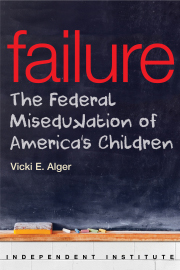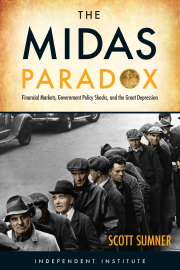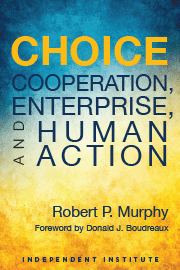Alvaro Vargas Llosa • Tuesday, December 21, 2021 •
Using human missiles, i.e. migrants, against another state for political reasons is one of the oldest tricks in the diplomatic playbook.
Turkey’s Erdogan used it quite successfully since the Syrian refugee crisis that began ten years ago—and got the Europeans to take in a million refugees, give him money and turn a blind eye to his regime’s domestic authoritarianism and foreign policy antics. Castro’s Cuba used it long before Erdogan, for instance in 1980 and 1994, creating internal problems for his archenemy—the U.S.— and gaining political oxygen by diffusing both the internal and external pressure for change.
Craig Eyermann • Monday, December 20, 2021 •
Business Insider‘s Dave Levinthal broke a big story in the week before Christmas 2021. After a five-month investigation, he found 52 members of Congress and 182 senior congressional staffers have violated the STOCK Act.
What Is the STOCK Act?
The Stop Trading On Congressional Knowledge (STOCK) Act is an anti-corruption law. It requires lawmakers and employees of the Congress, along with their close family members, to report all their investment transactions involving individual stocks, bonds, and commodity futures to regulators. The law aims to prevent members of Congress and their staff members from cashing in on the insider knowledge they possess of what’s in legislation and budget bills that can affect the fortunes of businesses. Under the law, they get up to 45 days to report their investment transactions.
Craig Eyermann • Monday, December 13, 2021 •
It is a bellwether moment for state and local government pensions funds around the country. CalPERS, the pension fund for California state government employees, is turning to high-risk strategies to juice its investment returns.
Randall G. Holcombe • Monday, December 13, 2021 •
The Federal Reserve and the Biden administration seem to have a very casual attitude toward inflation. When inflation started to draw some attention, the Federal Reserve’s official line was that it was transitory.
In June, Federal Reserve Chairman Jerome Powell said it was temporary, and John Williams, President of the New York Federal Reserve Bank, predicted inflation for 2021 to be around 3%. In response to this month’s inflation numbers, President Biden said this is the peak, and inflation should decline rapidly after this peak. He blames inflation on supply chain issues.
K. Lloyd Billingsley • Monday, December 6, 2021 •
On December 2 at the National Institutes of Health Joe Biden told reporters “I’ve seen more of Dr. Fauci than I have my wife. We kid each other. But — hey look, who’s president? Fauci.”
The Biden advisor, head of the National Institute of Allergy and Infectious Diseases, recently announced the arrival of Omicron. The Biden White House hinted at draconian measures such as seven-day quarantines after returning from abroad, mandatory testing under threat of legal punishment, and preventing non-compliant passengers from boarding flights.
Craig Eyermann • Monday, November 29, 2021 •
Imagine a state that puts the pensions of its government employees ahead of just about everything else it does. Would you choose to live there? And if you did live there, how long could you afford to stay?
These are real life questions that were faced by people who lived in cities like Detroit and Stockton. In these cities, public officials gave very generous pensions and benefits to government employees in return for their political support. So generous, they contributed to their bankruptcies in a very non-virtuous cycle.
Craig Eyermann • Monday, November 29, 2021 •
It’s not often you get to see cause and effect in action for government spending. Take the Biden-Harris administration’s $1.9 trillion “American Rescue” plan. That’s the one I described as a “failure of fiscal discipline” for which “ordinary Americans will ultimately pay” back in March of this year.
That spending bill is back in the news because it lived up to that billing! If you saw the October 2021 inflation report, you already know how ordinary Americans are paying for it. Whatever “sugar high” President Biden’s spending gave to the Americans who got “stimmy” checks has worn off.
K. Lloyd Billingsley • Monday, November 29, 2021 •
Saule Omarova, Joe Biden’s nominee for comptroller of the currency in the Treasury Department, went to Moscow State University on a Lenin Scholarship and wrote a thesis on “Karl Marx’s Economic Analysis and the Theory of Revolution in ‘The Capital.’” Omarova has yet to provide the Senate banking committee with readable copies and the Biden nominee recently indulged a fascinating dodge.
Omarova wants the government to take ownership of financial firms and attributes this view to the late British Prime Minister Margaret Thatcher. Trouble is, the Thatcher government wanted to privatize inefficient state industries and had to temporarily retain a stake in those industries as it shifted them to private ownership.
Craig Eyermann • Saturday, November 27, 2021 •
The Congressional Budget Office released its estimate of the costs of H.R. 5376, a.k.a. the “Build Back Better” Act. According to the CBO’s budget math, the much smaller spending bill that we talked about a few months ago doesn’t cost $0 as President Biden claimed it would. In fact, it doesn’t cost anywhere close to $0. Despite that, the U.S. House of Representatives voted to pass the spending bill.
Rather than trying to describe how much it does cost in both new spending and taxes, it’s easier to show you. The chart below reveals how much new spending and taxes the CBO expects from the shrunken bill over each of the next 10 years.
Mary L. G. Theroux • Wednesday, November 24, 2021 •
With Thanksgiving upon us once again, we offer a reminder of the economic lesson that made our first Thanksgiving possible:
The Pilgrims’ Real Thanksgiving Lesson
by Benjamin Powell
Feast and football. That’s what many of us think about at Thanksgiving. Most people identify the origin of the holiday with the Pilgrims’ first bountiful harvest. But few understand how the Pilgrims actually solved their chronic food shortages.
Many people believe that after suffering through a severe winter, the Pilgrims’ food shortages were resolved the following spring when the Native Americans taught them to plant corn and a Thanksgiving celebration resulted. In fact, the pilgrims continued to face chronic food shortages for three years until the harvest of 1623. Bad weather or lack of farming knowledge did not cause the pilgrims’ shortages. Bad economic incentives did.




























